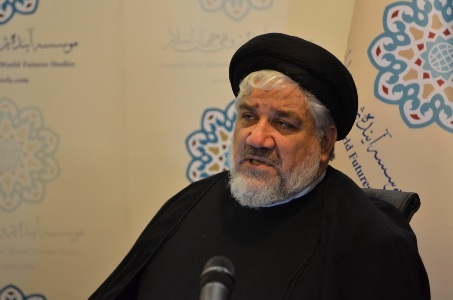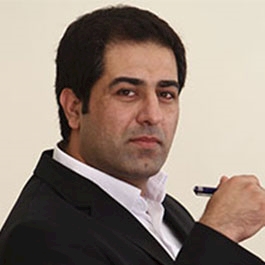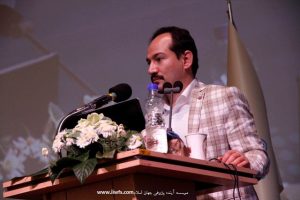I would like to discuss some points with the theme of “Turkey after the coup, challenges and choices”.
Given to the new conditions that occurred in Turkey after the July 15 coup, at first step Turkey’s objective challenges must be observed and included in any analysis to have a better understanding about the future of Turkey. In my opinion turkey has faced with seven challenges which directly affect on the decisions of this country and its future events as follows:
1- Ethnic challenges: mainly the , who make up about 20 percent of Turkey’s population.
Kurdish issue is a challenge for turkey according to the divergence project which progresses in the world regarding to the Greater Middle East and Kurdish issue, America, Britain and Israel are pursuing the vision of an independent Kurdistan. The independence of Kurdistan includes the Kurds in Iraq, Syria, Turkey and Iran. It starts from Iraq then Syria and turkey. Turkey is well aware of this fact and thus the Kurds are a major issue for Turkey. Especially given that intelligence services of America and Britain dominate them (Kurds). Kurds have a strong and historic relation with Israel and move in line with them. This is in challenge with turkey’s national interests and its territorial integrity. This challenge makes a domestic challenge and a challenge to the Turkey’s foreign relations with America and Israel.
2- The religious challenge: Alevis and The Sufis
The second challenge is the religious challenges which are Alevis and Sufis. Alevis who make up about 30 percent of Turkey’s population, historically have problem in ottoman rule. Before turkey with Islamic government, they have problems with Sunni and Ottoman Empire due to their religious beliefs and close relation with Shi’ism. After the rise of Ataturk and seculars, they were under pressure fromarmed forces and right-wing movements in turkey for a long time since they tend towards left-wing views. However, Alevisare dissatisfied with the situation they already involve in turkey, they havestrong potential to produce new tensions in the future of this country. Therefor external powers can dominate the dissatisfaction of this massive Alevi population. Some of whom tend towards Iran and some to left-wing.
The next case is about Sufis or dervisheswhich mainly divided in three groups of Mowlaviye, Bektashi and Khalwatiyyah. The Sufis have traditionally opposed power structure whether at the time of the Ottoman ruleor in the secular state. They are also under pressure right now. Monasteries have been officially banned in turkey under Ataturk regime’s influence. Although they have a great impression on turkey’s elite group, even in the Turkish regime some VIPs are the followers of Sufism and one of the Mowlaviye, the Bektashi and Khalwatiyyah order and I’m familiar with some of themwhowork in high positions and any way have a critical look at the current state of Turkey, both the secular and the current government.
3- Political challenge:
Turkey’s ruling and future government has faced with two political challenges with seculars and army and depends on how this country wants to deal with the wounded military and seculars who are in opposition to Justice and Development Party.Secularists and the AKP have a common interest and this is not to let military to take the power again. Although they have different ideas in various issues.Turkey’s military structure is western structure, especially American.Equipment, training and education of Turkey’s military are all American. Therefore, this issue will be a very important step in understanding the future issues in the discussions that will be made later on Turkish foreign policy in which it will be asked whether turkey goes toward Russia or America. I think that army is a deterrent position to turkey’s structural separation from West Block structures especially NATO.
4- Economic challenge
Turkey under the effect of recent developments is facing the crisis in decreasing the tourism revenues also reducing foreign investments. Along with the rise of turkey’s economic risks which increase the the cost of insurance, investments, finance and loans, therefore some projects haven’t got the former profitability. Obviously, Turkey’s economic growth rate will face a significant decrease under the effect of these economic elements.
5- Human rights challenge
Turkey is one of those countries known in arresting and jailing journalists and reporters and Europe and America are sensitive about this issue and according to the role of media in West, human rights issue is very effective on their decisions about the future of Turkey.
6- Challenge of terrorism operations by Kurds and the quasi-religious extremists
Kurds have carried and will carry terrorism operations for their independence both independently and in coordination with the Arabic reactionary movements as well as some of the factions in the West Block. On the other hand the quasi-religious extremists are Takfiris who seems to have started operations in turkey with the help of Saudi Arabia and will expand them. Also there is nearly the possibility of losing Takfiris extremists’ control and their destructive operations out by turkey.
7- Fethullah Gulen:
Fethullah Gulen is the next challenge which has been as the means of challenges between Turkey and America. Fethullah Gülen has an expanded network in turkey with media and training and financial facilities. His thoughts and network are considered as an alternative for the future of Turkey and the Sunni world and will make a serious problem for turkey.
Analysis of some key points:
Role of characters: related to this challenge, one of the most important intellectual in the decision-making policies of the AKP’s is Dr Ibrahim Kalin who is less known in Iran. He is a philosopher and student of Professor Nasr. Dr Ibrahim Kalin is interested in Mulla Sadra’s philosophy and his Sufism and has a kind of empathy with Iran although he has strong connections in America. In some cases Kallin plays a positive role in behind to reduce some tensions with Iran. Thus, some figures like Ibrahim Kalin who is less known but is elite must be accurately identified and considered in our calculations.
Gelatinous situation: the next item is the gelatinous nature of the Greater Middle East and the divergence, static and dynamic approach. I think that the current situation of Turkey and the Greater Middle East is Gelatinous situation and highly dynamic. Many categories have been created as we see during these 4 to 5 years period. Therefore these groups and coalitions which are formed are not a long-term alliance, but a temporary coalition to temporary common interests, since their countries and government are countries and governments with no historic roots such as Iraq, Saudi Arabia, Qatar and the UAE; in this region Iran and turkey have historical roots. This issue due to gelatinous situation and then divergence project which is implemented globally, seems that Turkey’s domestic and foreign policy are affected by the actions of regional and international actors, such as America, Europe, NATO, Russia, Saudi Arabia and Iran. In the sense that in my opinion, also Erdogan doesn’t know what he wants to do. According to the actions of these different regional and global actors, Erdogan’s decisions are the result of their decisions and actions and his action is under the effect of their actions. Therefore, there is a dialectical relationship between the action and reaction of Erdogan’s ruling government and regional and global actors.
5 scenarios: the next point is the issue of choosing the scenarios. Turkey faces a number of scenarios that I have predicted five of them in the area of foreign policy but not the domestic area. One of these scenarios is getting close to Russian-Iranian axis. The second one is the West axis including America, Europe, Saudi Arabia and Israel which is the West Block. The third scenario is the America-Europe without Arabs axis. The fourth is America without Europe and Arabs axis and the last one is the America- Iran axis. America- Iran axis might be the most attractive ones to you that how they can become an axis.
This scenario that Iran, turkey and America make a convergence is affected by the future developments in Iran on the Iran’s future government. This issue will effect on the matter that whether Iran will find more common interest with America in the Middle East or not, therefore if Iran gets close to America and given to this fact that turkey has a convergence with America, it might be possible that America, Iran and Turkey reach to an axis. I think there is a weak possibility for turkey to get close to West axis including America, Europe, Saudi Arabia and Israel since turkey competes with Saudi Arabia and has severe ideological differences. Israel does not trust Turkey and Turkey can’t count on Israel too much. I believe that the most likely axis for Turkey is the US axis without Europe and Israel and Saudi Arabia, since turkey has serious problems with Germany and France in Europe. France will not accept turkey and Germany has problems with turkey. England hasn’t an important role in Turkish affairs. Thus, according to the military structure and NATO, America axis is more possible. Russia-Iran axis, in my opinion is a poor axis for turkey shouldn’t be counted. In the sense that when turkey considers, it sees Russia and Iran are both problematic in the current world order. Therefore, turkey won’t accept to share its future with two countries which are bad boys in world’s game.
Conclusions:
• Turkey’s stability and security will become weak in the near future.
• Divergence in Turkey will be strengthened.
• Relations between turkey and West will remain with tension for a while.
• None of world and regional powers’ trust towards turkey will rebuild soon.





